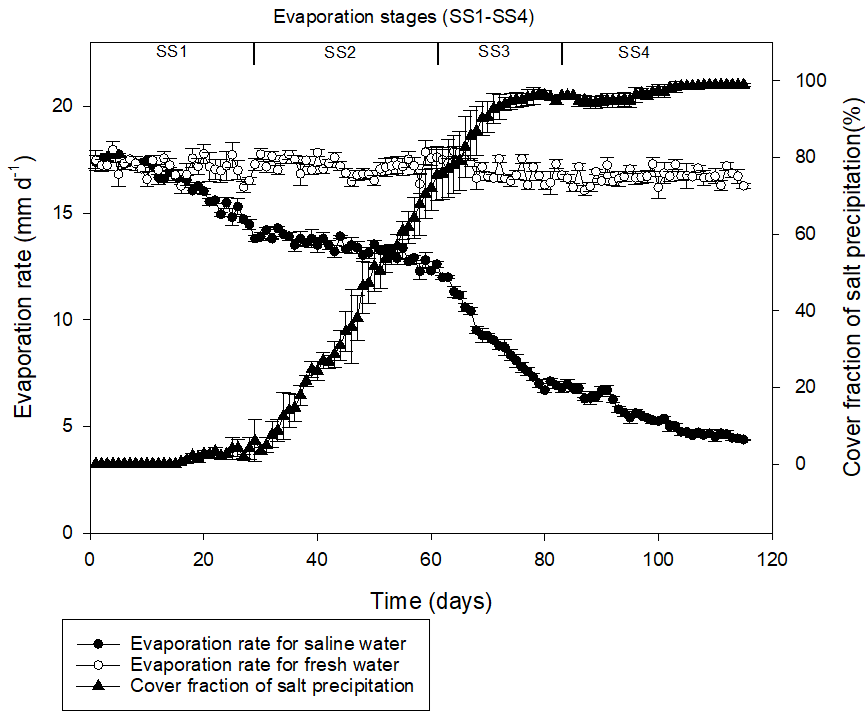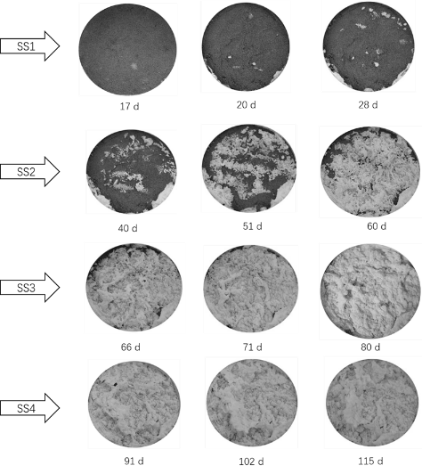Study: Researchers Reveal Effects of Evolving Salt Precipitation on Soil Evaporation and Temperature
2021-11-12
Researchers from Xinjiang Institute of Ecology and Geography, Chinese Academy of Sciences, found that the upward growth of salt precipitation causes significant reductions in evaporation rates and soil temperature.


The findings were published in Vadose Zone Journal, entitled "Effects of Evolving Salt Precipitation on the Evaporation and Temperature of Sandy Soil with a Fixed Groundwater Table".
Salt precipitation on the soil surface due to saline water evaporation from the surface of porous media is of great concern because salt precipitation affects dust emission, evaporation, soil surface temperature, and CO2 sequestration. However, the dynamics of salt precipitation and evaporation processes are poorly understood because salt precipitation rates, fractions of soil surface were covered by salt precipitation (hereafter cover fraction).
This study was to investigate the impact of evolving salt precipitation on the evaporation and temperature of sandy soils with a fixed groundwater table depth.
Results showed the lateral growth of salt precipitation had a minor impact on evaporation as the soil remained wet, while mostly being covered by the salt crust. However, the elevated salt crust caused a sharp decrease (more than 60%) in the evaporation rate. Therefore, a new stage of saline soil evaporation was determined; the evaporation rate was further reduced by the elevated salt crust.
The study was funded by the National Natural Science Foundation of China, West Light Foundation of Chinese Academy of Sciences.

Fig. 1 Variation in evaporation rate and cover fraction of salt precipitation

Fig. 2 Typical examples of precipitation patterns at different stages
Contact: LIU Jie, Xinjiang Institute of Ecology and Geography
E-mail: liujie@ms.xjb.ac.cn



